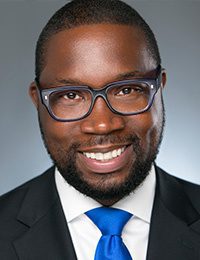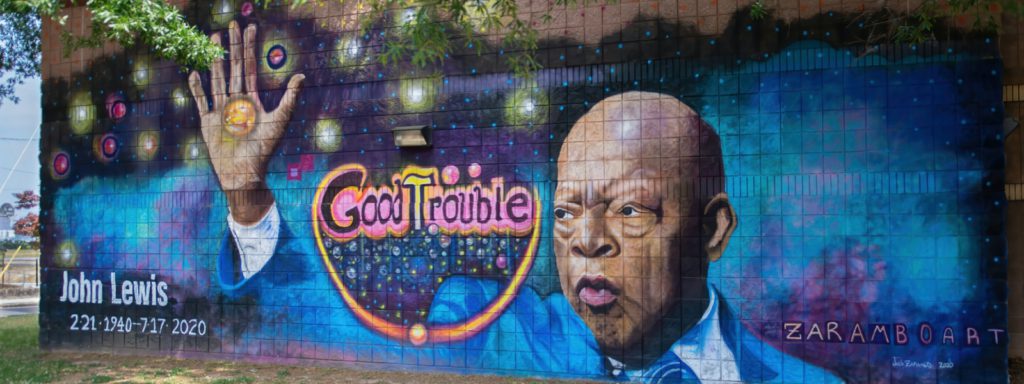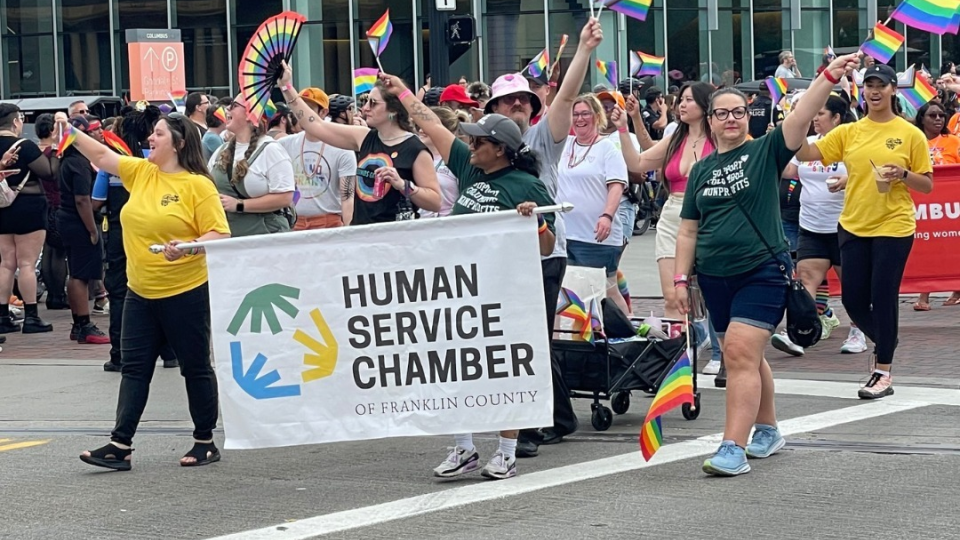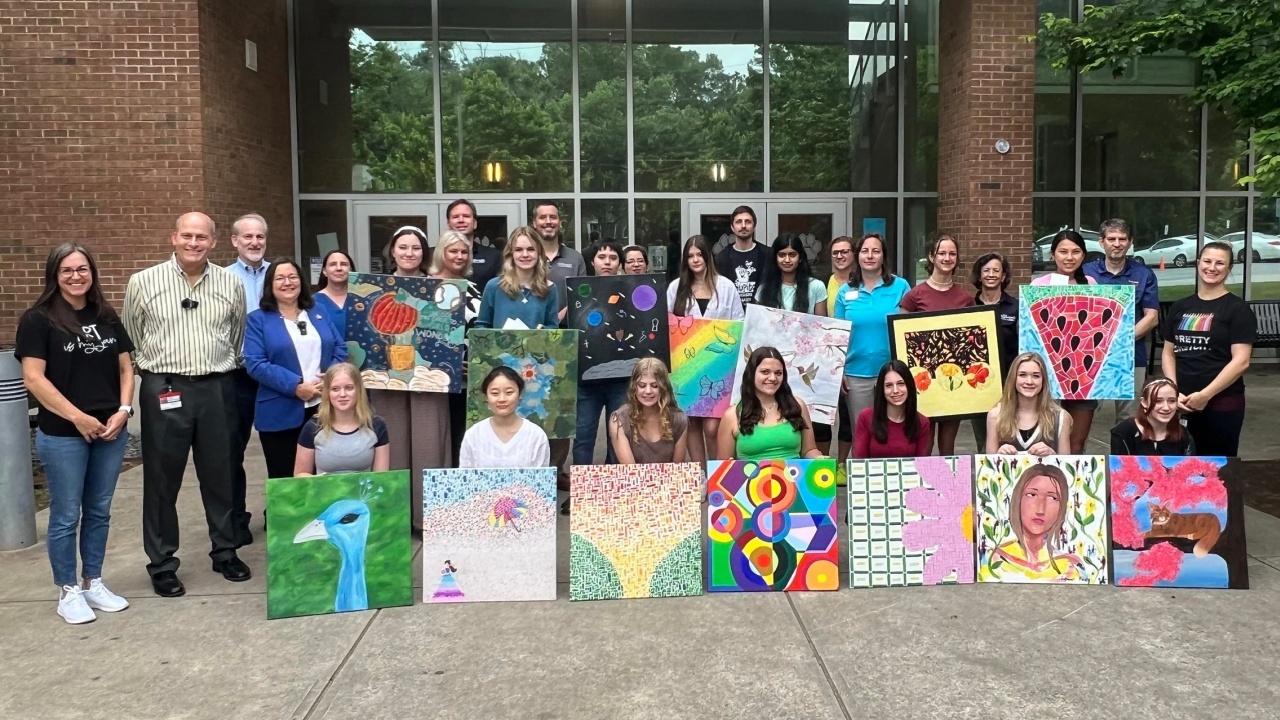Black history is American history. As we take time during February to acknowledge and celebrate the achievements of Black Americans and their contributions to our country, we also celebrate our members’ work to strengthen civil society and help ensure all people in the United States thrive. We asked several Independent Sector members whose work supports racial equity and strengthens communities what this month’s observance means in terms of their nonprofit’s mission.
Lynette A. Rawlings, PhD, Founder, President, and CEO

Lynette A. Rawlings
“Black History Month is a time to reflect on and celebrate the many achievements and contributions of generations of Black people who have struggled — often against unthinkable circumstances — to build a better future for their people and advance the humanity of the entire nation. This month is also when I take personal measure of how I am honoring these tremendous contributions and sacrifices through my actions and life’s work to date — to build The Policy Academies (TPA) — whose mission is to train and cultivate a new and diverse generation of racial equity and economic justice focused researchers and policy leaders from historically exploited communities. TPA also works to carve new career pathways and create opportunities for them to contribute to the discourse and to shape powerful policy solutions that serve their communities.
“February is especially a time to celebrate the efforts and genius of Black women who have been the backbone of our long and ever-evolving freedom struggle. Their labors often go unsung and their contributions undervalued. In TPA’s work with future policy leaders, we build into all we do an appreciation of people who have worked tirelessly, patiently, strategically, heroically, and often invisibly, to pave the way for us. Starting this year, we are being even more intentional about this recognition. First, TPA will launch the Kijakazi Fellowship program in partnership with the National Academy of Social Insurance. This new fellowship program will honor Dr. Kilolo Kijakazi’s pathbreaking career highlighting structural racism in public policy and being a driving force in making the racial and gender wealth gaps a part of the national conversation. We have also created the Michelle Bazie Legacy Award for Next Generation Policy Leaders — building on her mentorship of young policy analysts by funding their ideas and scholarship.
“This is just the beginning. As we move on from February, TPA will continue to create opportunities to pay tribute to the people whose pioneering work and mentorship shape a more just future and whose stories and achievements need to be amplified and passed on.”
One Hope United, Chicago, Illinois
Dr. Charles A. Montorio-Archer, President and CEO

Charles A. Montorio-Archer
“Black History Month is not just about learning of the challenges we as a people have been through. It is about our ability to have integrity, leadership, and determination in the face of our struggles. Crisis does not necessarily make character, but it certainly helps to reveal it. Adversity creates strength in character and determination, which is a lesson to learn and celebrate as we chart our continued progress.
“This month provides us with a moment to celebrate and rejoice in the tremendous changes we have experienced. At the same time, it is imperative that we recommit and learn from our past as to what has worked successfully so we can clearly identify what we still need to do. We want to take our rich history and reach beyond to inspire the next generation to continue to create and sustain positive change. This applies to working in human services — such as providing foster care, adoption, and other family and child support services. As the first Black President and CEO of One Hope United which serves over 10,000 diverse children and families, I am wholeheartedly determined to affect positive change, and transform the child welfare system to a child well-being system.”
Sundiata Salaam, Senior Director of Leadership Development with bes (build.excel.sustain) and Founder, Ubuntu Leadership Institute
“When I think about Black History Month, it’s difficult for me not to think about Carter G. Woodson. The founder of Black History Month, who began the celebration as Black History Week, wrote the seminal book, “The Mis-Education of the Negro.” Before I even read the book, the mere title of the book sent chills through my body. I had just read “The Autobiography of Malcolm X,” and was infuriated by my “miseducation.” Malcolm X taught me things that I NEVER learned in school, and this realization not only angered me, but it also motivated me to begin a thorough search for knowledge.

Sundiata Salaam
“For most of my life, I was under the impression that I did not like to read. I even remember being thoroughly disciplined for refusing to memorize Robert Frost’s “The Road Not Taken.” Can you imagine the shock of a 21-year-old who realized that his lack of desire for reading was not about his intelligence, but the lack of exposure to himself? School did not introduce me to my history. School did not give me an accurate reflection of the what’s or why’s of the current reality of our society. School did not “school” me.
“This awakening later became the foundation in which I fulfilled part of my purpose/mission. I joined education because I hoped that others who looked like me would not have to have my experience. I became an educator because I hoped that students who later read “The Mis-Education of the Negro” were either introduced to it through myself, or were inspired by the information, but hadn’t experienced the miseducation themselves. The founder of Black History Week brought me to this place. I became an educator, and later a leader of school founders/school leaders, because I wanted to make sure that other schools were not guilty of this mis-education. Black History Month and its founder are a consistent reminder of my mission. I hope to never forget it.”
Afa S. Dworkin, President & Artistic Director
“Sphinx Organization is a nationally focused social justice organization that helps advance Dr. Martin Luther King, Jr.’s vision of opportunity for all through our work to transform lives through the power of diversity in the arts. Founded in 1997, Sphinx catalyzes change in the landscape of classical music, with $4.5 million invested in artist grants and scholarships, a digital imprint of 60 million, and an alumni roster of more than 850 artists and leaders.

Afa S. Dworkin. Photo by Shawn Lee
“Our programming spans early creative youth development, spotlights and empowers emerging and professional Black and Latinx artists, and serves the field of classical music and our vibrant and diverse communities. Sphinx looks to leverage our leadership role, partnerships, history, and best practices, as they relate to the advocacy and advancement of DEI in the field, to effectively support and advocate for artists, as well as support our program partners and institutions committed to advancing DEI in the arts and classical music field. Music empowers, heals, and erases complex barriers, which otherwise separate us. It is Sphinx’s mission to shed a spotlight, equalize access, and invest in the tremendous talent of our artists so that the future of this field may be more just and enlightened than its past.
“Our work underscores the simple idea that in order for our field to thrive, it must be relevant to our constituents. Relevance comes from a sense of belonging and representation. As such, we cannot excel, innovate, or thrive unless we make room for the historically excluded voices so that our sector reflects the vibrant diversity in our communities. Over the course of the pandemic, Sphinx extended our digital reach by nearly 1,000% and experienced a cumulative growth in its application pool of 60%. Our artists have innovated by performing online, in empty and full concert halls, and through various social media and virtual platforms. With the impact of COVID and its disproportionate effect on the Black American community, our work becomes even more purposeful as we seek to serve and empower our artists during these uncertain and challenging times.”
The Policy Academies, One Hope United, Ubuntu Leadership Institute, and Sphinx Organization are members of Independent Sector. Learn about other Independent Sector members and becoming a member.



